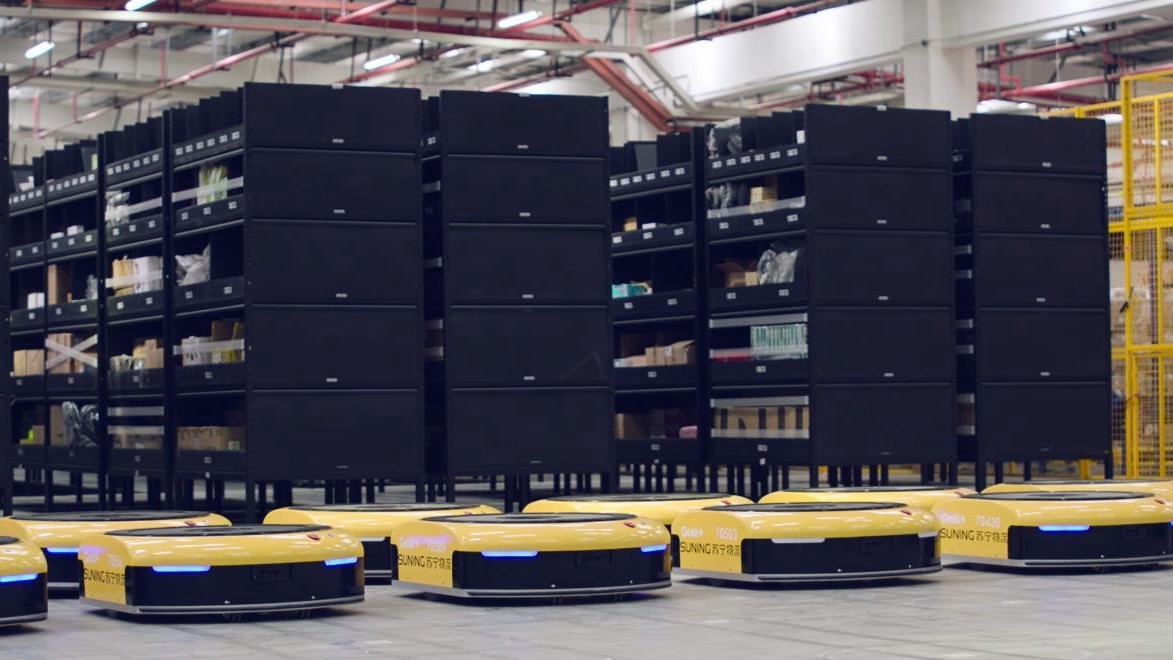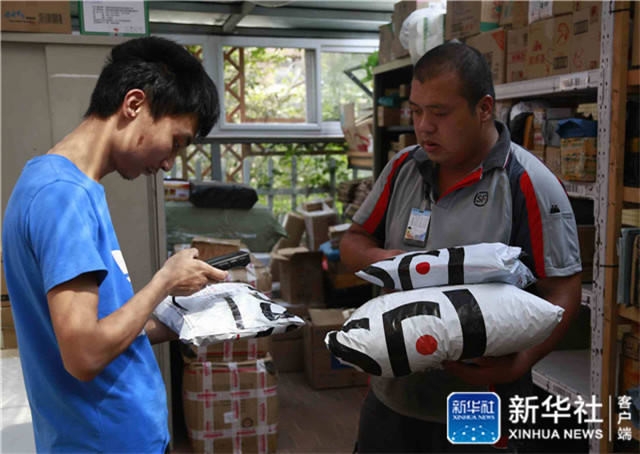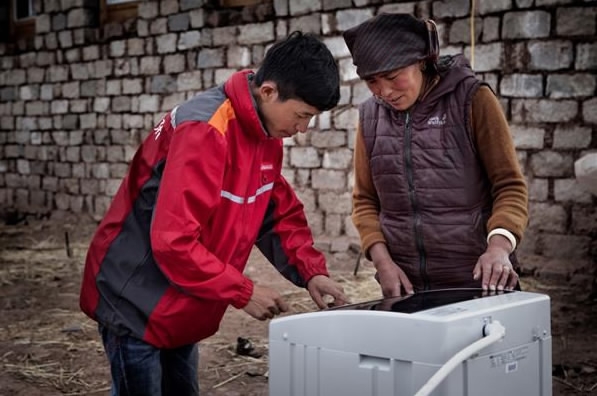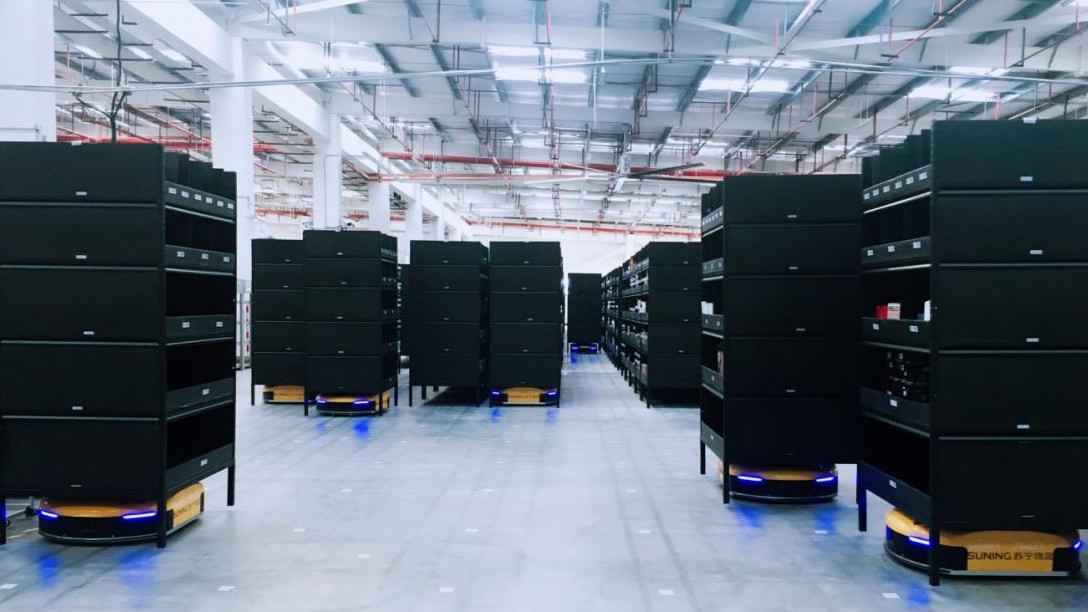
Tech & Sci
15:51, 10-Nov-2017
E-commerce giants use big data, robots to tackle logistics of 'Double-11'
By Guo Meiping

China's online shopping festival "Double-11" (November 11) is around the corner. It is the best opportunity for buyers to spend money and an important revenue-driver for e-commerce companies.
Logistics, one of the most important parts in online shopping, is expected to face serious challenges during the shopping spree due to the massive amount of orders.
In order to hand goods over to buyers on time, Chinese e-commerce giants Alibaba, JD.com and Suning Commerce Group having been adopting high-tech means in their operation process.
Alibaba: Big data predicts best sellers
The Hangzhou-based e-retailer has been optimizing the delivery experience for buyers using big data.
Cainiao, a logistics firm founded by an Alibaba-led consortium in 2013, will play an important role during the shopping festival.
"Our partners (express delivery companies) have no idea how many packages they will need to ship out across the country during 'Double-11'," Wang Wenbin, CTO of Cainiao, told Xinhua during an interview this October.

Courier receiving goods from Cainiao's warehouse. /Photo via Xinhua
Courier receiving goods from Cainiao's warehouse. /Photo via Xinhua
"We make predictions based on big data in terms of order quantity so our partners can make preparations ahead of time."
The company has been placing warehouses in advance in first and second-tier cities based on big data, which can forecast the best sellers during the shopping spree. These popular products will be shipped to advance warehouses before the shopping festival to ensure the delivery speed.
"Although customers haven’t placed their order yet, their Double-11 products are already shipped to their cities," he added.
Also, by doing real-time analyses, Cainiao can predict traffic conditions on each transport route. They will make early warnings to delivery companies on crowded routes and provide suggestions to them to make sure buyers of Alibaba’s Taobao and T-mall get their goods on time.
JD.com: Efforts in rural area

A JD courier setting up an appliance for buyer in rural area. /Photo via Donews.com
A JD courier setting up an appliance for buyer in rural area. /Photo via Donews.com
JD.com has always been trying to develop markets in the rural areas of China.
Similar to Cainiao’s demand forecast, JD.com also predicts the most-demanded products during the shopping festival based on big data, so it can set up movable warehouses and store goods in rural areas beforehand.
Deliveries of large appliances to remote areas, which can take more than half a month, can be shortened to three hours through this service.
"I thought the delivery would be very slow during the 'Double-11' shopping festival," a villager in Hubei Province, who bought a TV set on JD.com around the shopping festival, told Donews.com. "It arrived about two hours after I placed my order."
Suning Commerce Group: Robots speed up the process

Suning Commerce Group uses robots as works in a warehouse in Shanghai. /Photo via Chaoqi.net
Suning Commerce Group uses robots as works in a warehouse in Shanghai. /Photo via Chaoqi.net
A warehouse operated mainly by robots was launched in Shanghai by Suning Commerce Group in October to increase the efficiency of logistics for the November 11 shopping festival, according to 21jingji.com.
Instead of having people run around hundreds of shelves, staff in the warehouse can give instructions to robots and let them do the heavy work faster and with a lower error rate.
According to Feng Feilong, manager of the warehouse, the 200 robots can run 1,766 kilometers in total per day.
After a trial operation of more than half a year, the robots will undertake the high-intensive logistics duty of the red-lettered day.

SITEMAP
Copyright © 2018 CGTN. Beijing ICP prepared NO.16065310-3
Copyright © 2018 CGTN. Beijing ICP prepared NO.16065310-3